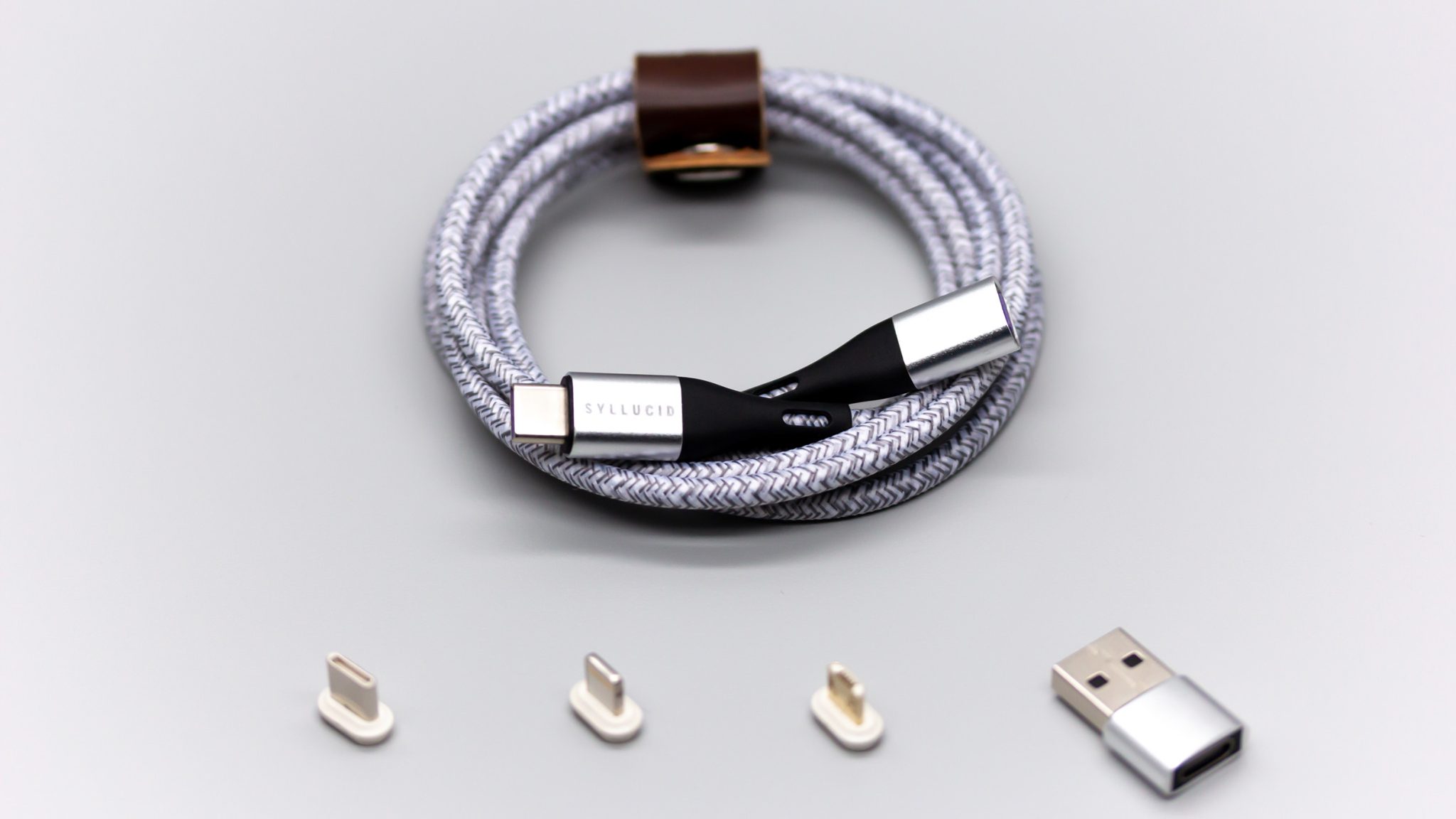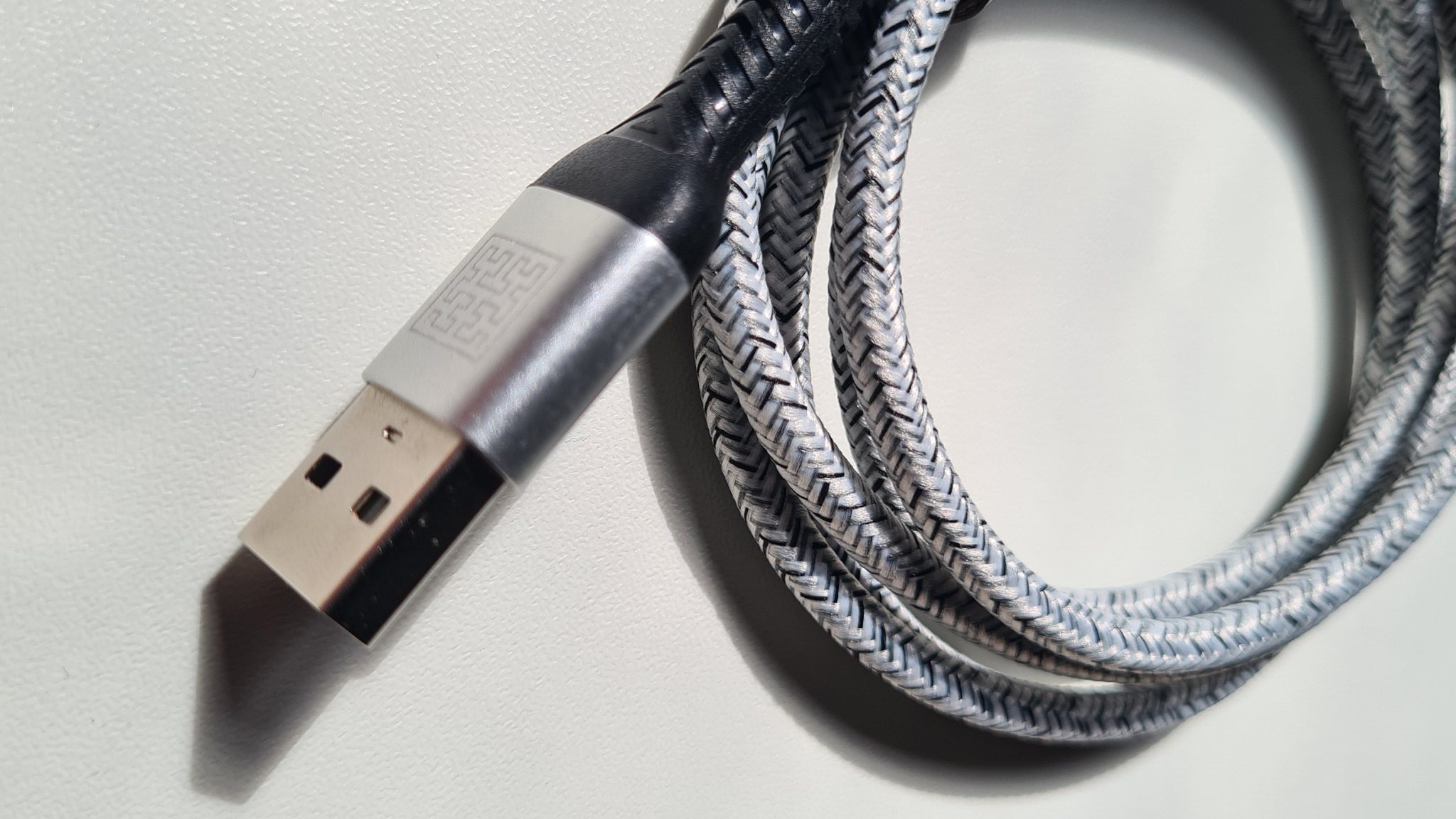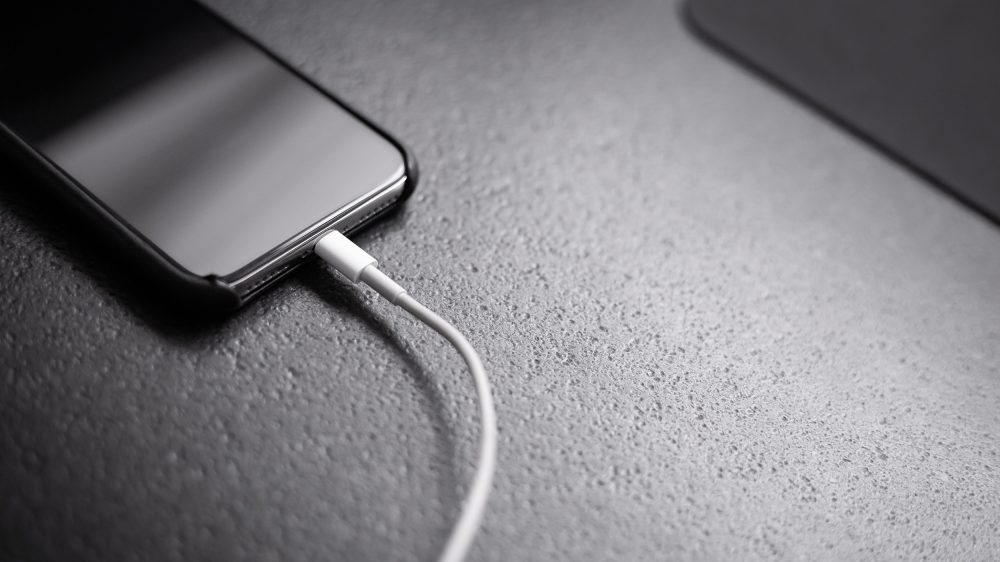Electronics manufacturers are removing USB cables from packages for new devices. These accessories might be customer-friendly, but most customers already have all of the cables they need hidden away in a drawer ten times over. Chargers new and old never last long, and typically end up as electronic waste in landfill. All USB charging cables contain plastic as well as rare earth materials that are extracted under high CO2 emissions, so producing them unnecessarily is seriously damaging for the environment.
Creating more durable electronics offers great potential for CO2 reduction. Developments towards more durable notebooks, washing machines, smartphones and televisions could save around 3.93 million tonnes of CO2 equivalents annually. Companies such as Fairphone or Shiftphone already offer modular smartphones that, when damaged, are much easier to repair than conventional models.
The company Syllucid is transferring this concept to USB cables. Syllucid’s cables fulfil several functions and fit several devices, removing the need to buy several cables for different devices. What’s more, their cables are also created using recycled materials.
Modularity reduces the need for different connection cables
Syllucid’s concept is made possible with modular USB cables and interchangeable plugs. This not only guarantees compatibility with the USB-C, Lightning and microUSB standards, but also saves consumers from having to buy additional cables. The 1.2 metre-long “Origin” cable also supports several power supply standards. These include USB Power Delivery for up to 60 watts, Quick Charge 3.0 for up to 36 watts and Apple’s own charging standard for up to 18 watts of charging power.
This means the cable can be used for charging notebooks as well as in connection with Android and iOS smartphones. The company ensures rudimentary data transfer according to USB 2.0. However, the cable cannot be used to transfer video content or high data rates.

The various connections are exchanged magnetically, which offers another advantage. Instead of pulling notebooks or smartphones off the table, the cable simply snaps off and can then be plugged back together again.
Recycled materials and long-life
Syllucid has also tried to avoid the most common sources of error and damage of conventional cables during the development. The “Origin” model is clad in a braided sheath of nylon, which, together with reinforcements at the ends of the cable, is said to be particularly durable. At the same time, this prevents cable breakage at the connector ends.
New EU energy label shows repairability of smartphones and tablets
Light in the darkness of electrical appliances: After all, a new energy label is to be found on smartphones and tablets throughout the EU from 2025. The European Commission, in cooperation with the EU member states, has decided to introduce an EU energy label, which for the first time will indicate on a scale of A-E how well the devices can be repaired. The label not only provides clarity for consumers, but hopefully gives manufacturers of smartphones and tablets a further incentive to design their products in an innovative and sustainable way. Read more here.
Syllucid’s cables are thicker than most and are reinforced with nylon on the inside. The cables are therefore able to withstand up to 10,000 bends. For example, when you receive a free USB charging cable, it’s usually loosely shielded in plastic and capable of surviving for only a couple hundred bends.
Focus on fair working conditions and sustainable material extraction
Even though Syllucid makes its cables more flexible and durable, the company does use rare earth materials such as gold and neodymium in their production. This is, however, currently unavoidable, and justified by better conductivity through gold-plated plugs. Neodymium is also used in the cables’ magnets. However, the extraction of both of these materials is often associated with the exploitation of workers and with inhumane and, above all, unsafe working conditions.
Syllucid tries to compensate for this by using Fairtrade gold. With this, the sources of the extracted gold must fulfil strict certificates and miners receive a Fairtrade bonus. This intends to ensure that the wages paid to the workers are sufficient enough to provide them with an adequate livelihood. In addition, investments are made in tools and infrastructure to make the work as safe and secure as possible.

Syllucid certainly does more than most when it comes to trying to negate the negative consequences of rare earth materials. Their cables are manufactured with CO2-neutral solder wire, for which suppliers must also ensure that their profits are not used to finance wars and conflicts in the countries of origin. Syllucid also donates five percent of its profits to the PUR Project, which runs reforestation projects in the Amazon rainforest, aiming to offset the negative effects of metal extraction in rainforest areas.
In order to make sustainable electronics interesting for a larger target group, Syllucid combines better sustainability with a practical benefit. This gives customers a further incentive to opt for the connecting cable, which is relatively expensive at 35 euros. According to the company’s website, they want to offer more alternatives to electronic products in the future and show the “true costs of the electronics industry for our planet”.
With its comprehensive sustainable approach, Syllucid shows the electronics industry, which until now has hardly taken ecological and social aspects into account, that there is another way.








